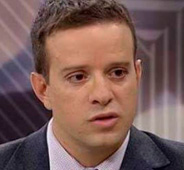Publicidade
By Erich Decat
The latest movements on the Brazilian political chess board have not been supportive of the intention of the minister of Economy Henrique Meirelles to stand for the next presidential election.
Currently, Meirelles belongs to the PSD, one of the centre-right parties that are in the current ruling coalition. Since last September and until the beginning of this year, Meirelles had the green light from the main PSD leaders to “campaign” and try to advance in the polls.
Continua depois da publicidade
Despite this support and his frequent presence in the media, Meirelles’ candidacy doesn’t seem to be taking off. According to the last survey, conducted by Datafolha in January 2018, only 1% of the voters would back him.
With these numbers on the table, the main PSD leaders have started signaling to other centre-right parties that they prefer to be in a presidential coalition with them rather than to have their own presidential candidate.
Currently, the PSD edges towards Geraldo Alckmin’s presidential campaign. Alckmin is the current São Paulo governor and belongs to PSDB, the main centre-right party. According to the last poll, he is in third place with 6%.
Continua depois da publicidade
As part of the negotiations to form a presidential coalition, the president of PSD and current minister of Communication, Gilberto Kassab, expects Alckmin’s support in the São Paulo state coalition led by PSDB in exchange for his support for Alckmin in the presidential race.
At the moment, this agreement between Alckmin and Kassab is the most likely. As a result, Meirelles would have to change his party affiliation to stand for the next presidential election. Bear in mind that, according to the electoral rules, he has to decide until April. Furthermore, to stand in the next election, he has to leave the cabinet in the same month.
One possibility for the minister of Economy is to join the MDB, president Michel Temer’s party and the biggest in Brazil. The president and the MDB have been looking for a candidate that defends their “legacy”, during the presidential campaign.
Continua depois da publicidade
Naturally, Meirelles can easily do it because he commanded the main economic changes introduced by the current government. The problem for Meirelles is that although the MDB leaders are ready to welcome him to the party, they may not choose him as their presidential candidate.
They certainly have on the table the last polls and they even know they don’t have to make a decision now. An official announcement has to be made only in July. With this huge uncertainty, Meirelles runs the risk of switching to MDB and not seeing his name on the ballot papers.
You may ask why Meirelles doesn’t run for another small party. By doing so, his chances of being elected will diminish even further.

